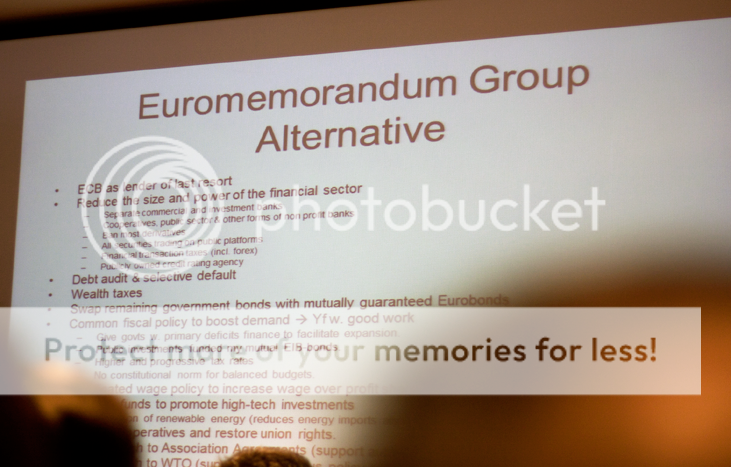The New Budgetary Discipline in the EU: Implications for Socio-Economic Developments and Democracy. Opening remarks by Erkki Tuomioja at the Attac seminar in Helsinki 22.2.2012
I will begin by addressing the democracy question. We are witnessing not only a financial / debt / euro crisis, but also a deep crisis of democracy in Europe.
Even by the modest standard of whether the EU respects its own rules and the democratic elements therein, the answer is a dismal no. The big picture is, that all normal procedures for preparing and taking decisions in the EU have been put aside. The Commission has been shunted aside, the permanent president of the EC is a mere frontman for the Merkel-Sarkozy axis driven by Berlin which prepares and imposes its own solutions on everyone else, who come to EC and Euro group meetings with limited if any foreknowledge of what they are expected to sign on to.
The most illustrating example of this is the pact for the strengthening of the Economic Union (or whatever its final name will be).
- sprung by Merkozy with the backing of the EPP leaders on the EC with no foreknowledge, public debate or critical analysis.
- adds to the confusion in the EU institutional framework.
But also the larger framework of how the debt crisis has been managed in the EU has contributed to the democracy crisis.
The Finnish Parliament through its Grand Committee has been the best informed national parliament meeting, for example, at 7:30 in the morning last Monday to go through the proposals for the second Greek rescue package. But even if our own national system of parliamentary scrutiny over EU affairs has functioned more or less as our constitution requires between government and parliament it means that the government has openly shared its own ignorance with parliament being itself usually only partially informed at best of what will be proposed at the meeting or PM or FM will attend.
I stress the role of the National Parliaments in the process. With due respect to the European Parliament it does not carry the same democratic legitimacy as National Parliaments and of course can have no say in how national budgetary resources will be used for dealing with the debt crisis - not that the EP has been adequately informed or consulted on those issues where it has real responsibilities under the treaties.
As for democracy in Greece one can seriously question whether the EU is now engaged in trying to turn the cradle of democracy into the grave of democracy, even if some of the most outrageous proposals for limiting Greece's democratic sovereignty have been so far rejected.
I will leave my comments on the Socio-Economic implications for later. But to be charitable I think that not everything that has been done is wrong, harmful or unnecessary. In addition to welcoming the new enthusiasm for the Financial Transaction Tax I believe, for example, that the ESM for all its shortcomings is needed and certainly better than the ESFS, and that while the so called six pack of legislation can be and should be improved it is nevertheless needed.
What I have questioned is the pact on economic Union which I still believe can be characterized at best as irrelevant and at worst potentially harmful. But I hope that we can in this seminar move from concentrating on what has gone wrong and what has been done wrong to focusing on what should be done to rectify past mistakes and avoid new crisis in the future.

